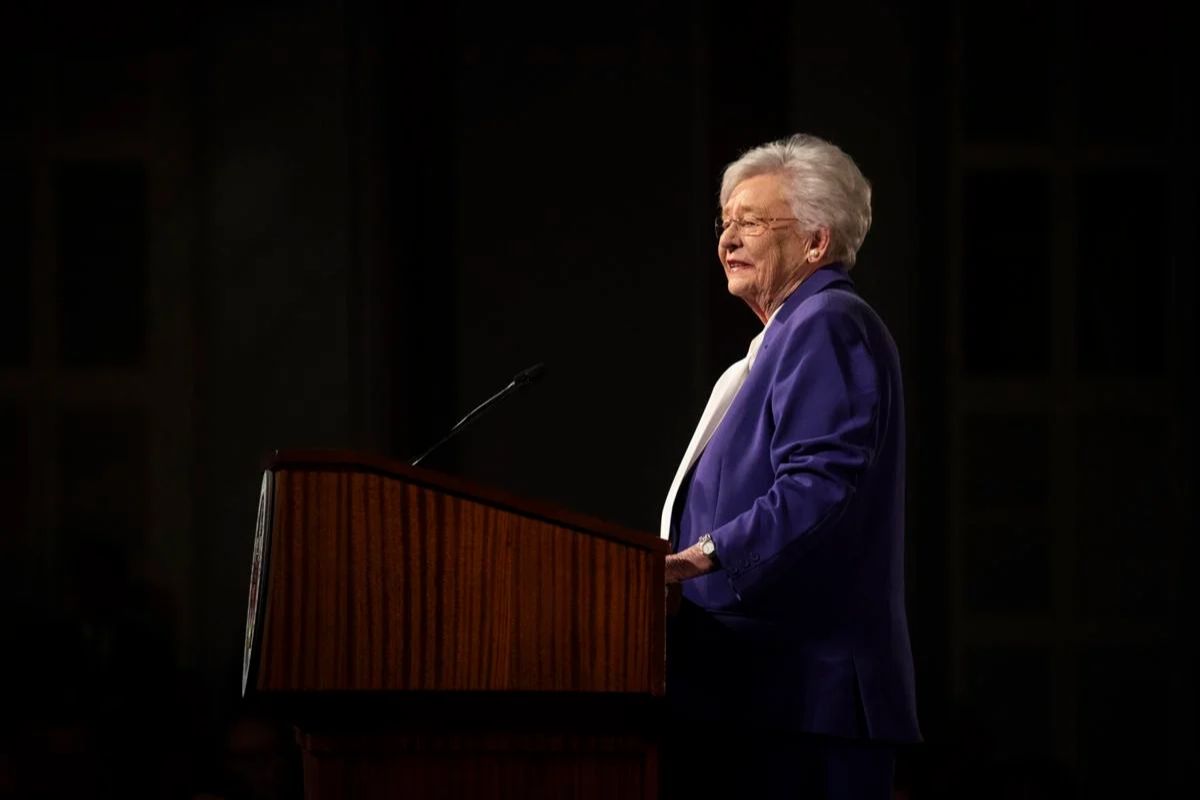Alabama DEI Bill Sparks Auburn Reaction: As you explore the aftermath of Alabama’s DEI bill, Auburn University and local institutions offer insights. Auburn acknowledges the impact on DEI offices and funding, with exceptions for accredited instruction. Alabama State University reaffirms commitment to equality, emphasizing inclusivity.
Southern Union State Community College stays devoted to student success. Governor Ivey defends the bill to safeguard taxpayer funds. Public schools, like Auburn City Schools, assess implications and plan compliance strategies. The reactions reveal complex discussions and efforts to navigate this controversial legislation, providing a glimpse into the multifaceted responses to the DEI bill in Alabama.
Alabama Gov. Kay Ivey Signs Controversial Anti-DEI Bill into Law
Alabama Gov. Kay Ivey has officially signed the controversial Anti-DEI Bill, known as State Bill 129, into law, impacting all public educational institutions in the state. This legislation, passed by both the Alabama House of Representatives and Senate, prohibits universities, K-12 school systems, and state agencies from supporting diversity, equity, and inclusion (DEI) offices and programs.
Effective from October 1, the bill prohibits compelling students, employees, or contractors to endorse divisive concepts and participating in DEI programs advocating for such ideas. It outlines eight specific divisive concepts, including the belief that meritocracy or a strong work ethic are inherently racist or sexist. Moreover, the bill rejects the notion that individuals bear responsibility for actions of others based on shared race, color, religion, sex, ethnicity, or national origin.
This law marks a significant shift in how public entities approach DEI initiatives, sparking debates and concerns within Alabama’s educational landscape.
Responses from Local Universities
Evaluating the implications of SB 129, local universities in Alabama are actively examining the impact of the recent legislation on their DEI initiatives and programs.
| University | Response |
|---|---|
| Auburn University | Acknowledged the bill’s effect on DEI offices and funding but highlighted exceptions for accredited instruction and research, prioritizing academic freedom. |
| Alabama State University | President Dr. Quinton T. Ross, Jr., reaffirmed the institution’s commitment to equality and opportunity, emphasizing core values and inclusivity. |
| Southern Union State CC | Currently reviewing the legislation’s impact, the college remains dedicated to its values for student success and inclusivity. |
Auburn University emphasizes maintaining academic freedom while complying with the new legislation. Alabama State University’s President underscores the institution’s dedication to core values of equality and opportunity. Southern Union State Community College, part of the Alabama Community College System, is committed to reviewing the legislation’s implications while staying true to its values of student success and inclusivity.

ALSO READ: AUM Program Boosts STEM Teachers: Classroom Impact
Reactions from Public Schools and Governor Ivey
Governor Ivey’s defense of the DEI bill focuses on preventing the misuse of taxpayer funds for partisan purposes under the guise of advancing political agendas. By emphasizing the need to safeguard public resources from being exploited by ‘bad actors,’ Governor Ivey underscores the importance of maintaining transparency and accountability in the implementation of diversity initiatives. Her administration’s stance signals a commitment to upholding the integrity of DEI efforts while ensuring that public funds are utilized for their intended purposes.
Public schools in Alabama, including Auburn City Schools, Lee County Schools, and Opelika City Schools, are currently assessing the implications of the DEI bill. While these institutions have refrained from issuing official statements, their deliberative approach suggests a thoughtful consideration of the legislation’s potential impact on their educational environments.
As the fall semester approaches, these schools, along with others across the state, are evaluating the complexities of SB 129 and strategizing how best to incorporate its requirements within their respective campuses and communities.
News in Brief
As local institutions in Alabama navigate the implications of the recent DEI bill signed into law by Gov. Kay Ivey, reactions vary across the board.
Universities like Auburn are expressing concerns over the potential impact on diversity initiatives, while public schools are grappling with how to comply with the new regulations.
Gov. Ivey’s decision has sparked a conversation about the balance between free speech and inclusivity, highlighting the complex nature of diversity and equity in education.
Our Reader’s Queries
What is a DEI bill in Alabama?
This fall, Alabama will enact a fresh law that bars diversity, equity, and inclusion offices, as well as related programming and training, in public colleges and other state agencies.
Is Auburn University a government entity?
In 1872, the college underwent a transformation, transitioning from a private liberal arts institution to a state-owned, land-grant establishment. It was then christened the Agricultural and Mechanical College of Alabama, with a renewed focus on pioneering scientific and agricultural initiatives.
Why did Alabama ban DEI?
The ACLU of Alabama expressed concerns about SB129, suggesting its purpose was to stifle conversations on topics such as race, class, sexuality, and national origin. Describing it as a form of classroom censorship, they argued on their website that the bill inhibits education about systemic inequities, racial violence, and societal truths.
What is DEI responsible for?
DEI, short for diversity, equity, and inclusion, serves as the overarching framework for initiatives, policies, and practices aimed at advancing a company’s commitment to fostering a diverse, equitable, and inclusive workplace. This encompasses creating an environment that values and supports employees of all ethnic backgrounds and sexual orientations.

